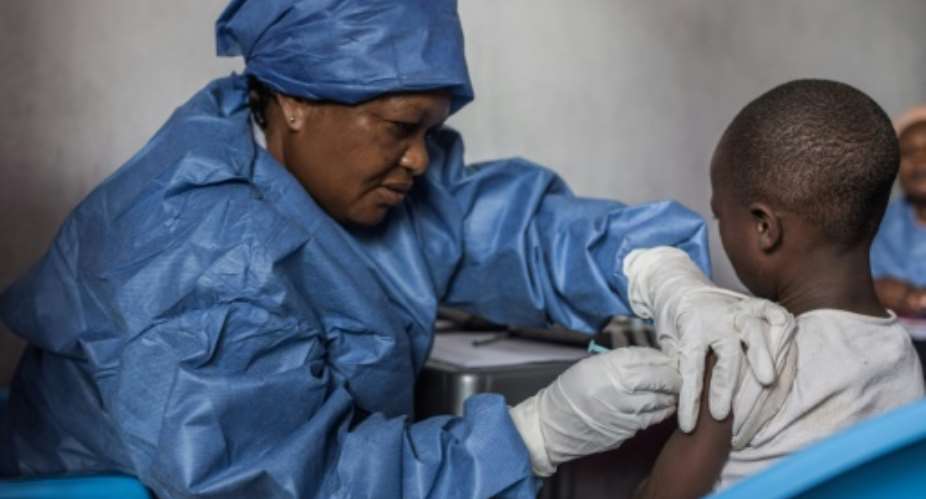The UN health agency on Wednesday said it was extending its global emergency designation for the Ebola outbreak in DR Congo but said the sharp decline in cases was "extremely positive".
The recent outbreak was first identified in August 2018 and has since killed more than 2,300 people in eastern DR Congo -- an area where several militia groups are operating.
"As long as there is a single case of Ebola in an area as insecure and unstable as eastern DRC, the potential remains for a much larger epidemic," WHO chief Tedros Adhanom Ghebreyesus told reporters in Geneva.
Tedros voiced hope that the emergency could be lifted within the next three months on the advice of the WHO's Emergency Committee of international experts.
The World Health Organization last July declared it a "public health emergency of international concern" -- a designation that gives the WHO greater powers to restrict travel and boost funding.
Tedros, who will be travelling to DR Congo on Thursday to meet President Felix Tshisekedi, on Tuesday said only three cases had been reported in the past week.
But for the epidemic to be declared over, there have to be no new cases reported for 42 days -- double the incubation period.
The health emergency designation last year came a few days after a patient was diagnosed with the virus in the provincial capital Goma -- the first case in a major urban hub.
More than a month before that, the WHO reported that the virus had spread to Uganda for the first time.
The Ebola virus is passed on by contact with the blood, body fluids, secretions or organs of an infected or recently deceased person.
The death rate is typically high, ranging up to 90 percent in some outbreaks, according to the WHO.
This is the second worst outbreak of the disease since 2014 when it killed about 11,000 people -- mostly in Guinea, Liberia and Sierra Leone.
Efforts to contain the current outbreak have been hindered by attacks on health workers and conflicts in the east.
The WHO said in November it had moved 49 staff out of the Beni region in eastern DR Congo because of the insecurity.
The Beni region, straddling the North Kivu and Ituri provinces, has been repeatedly attacked by the Allied Democratic Forces (ADF) rebel group, which activists say has massacred more than 300 people since October.





 We’ll protect state wealth from opaque deals – Prof Jane Naana
We’ll protect state wealth from opaque deals – Prof Jane Naana
 Mauritania president says running for second term in June polls
Mauritania president says running for second term in June polls
 I won't ever say I was a mere driver’s mate' — Prof. Opoku-Agyemang
I won't ever say I was a mere driver’s mate' — Prof. Opoku-Agyemang
 2024 polls: 'EC struggling to defend credibility'— Prof. Opoku-Agyemang
2024 polls: 'EC struggling to defend credibility'— Prof. Opoku-Agyemang
 Akufo-Addo gov't's 'greed, unbridled arrogance, unrestrained impunity, sheer dis...
Akufo-Addo gov't's 'greed, unbridled arrogance, unrestrained impunity, sheer dis...
 Election 2024: Ghana needs an urgent reset, a leadership that is inspiring – Ma...
Election 2024: Ghana needs an urgent reset, a leadership that is inspiring – Ma...
 Partner NDC to rollout a future of limitless prospects – Prof Jane Naana Opoku-A...
Partner NDC to rollout a future of limitless prospects – Prof Jane Naana Opoku-A...
 NPP will remain in gov’t till Jesus comes — Diana Asamoah
NPP will remain in gov’t till Jesus comes — Diana Asamoah
 Sunyani Technical University demands apology from former SRC president over sex-...
Sunyani Technical University demands apology from former SRC president over sex-...
 'Dumsor' was resolved by Mahama but ‘incompetent' Akufo-Addo has destroyed the g...
'Dumsor' was resolved by Mahama but ‘incompetent' Akufo-Addo has destroyed the g...
